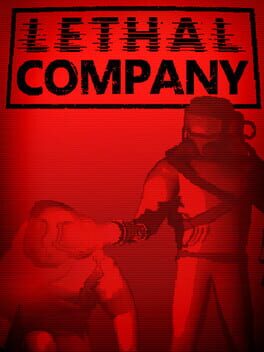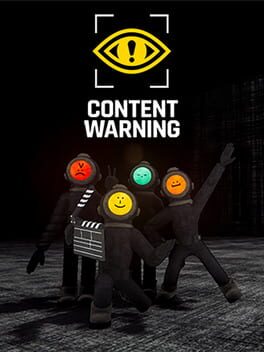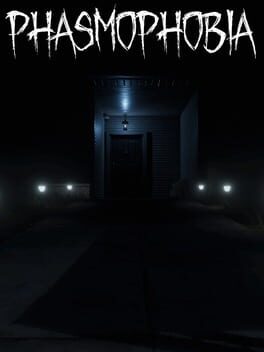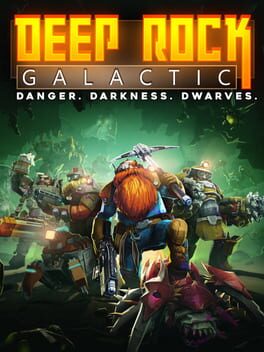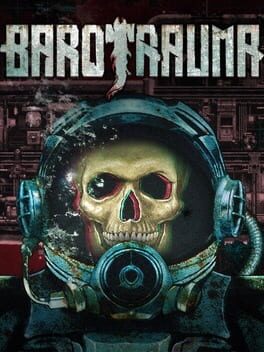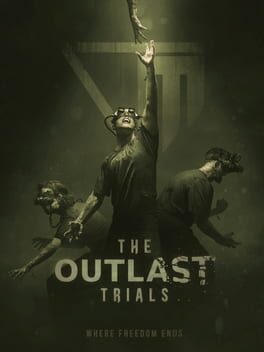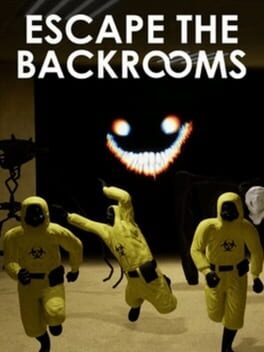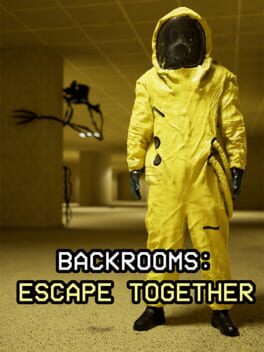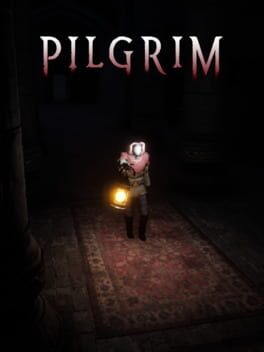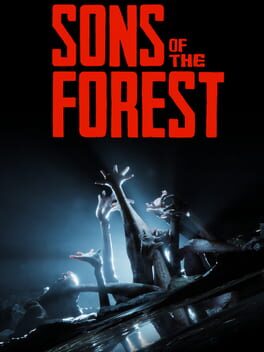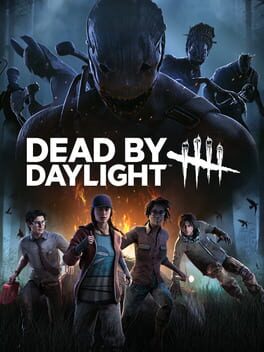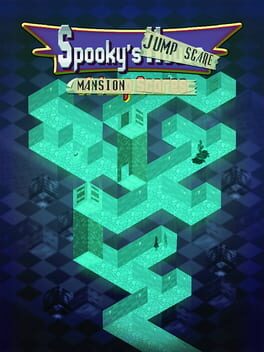17 Best Games Like Lethal Company But For PC (Microsoft Windows)
Looking for heart-pounding cooperative horror experiences that blend tension, teamwork, and terror? If you're craving that perfect mix of multiplayer survival, creature encounters, and mission-based gameplay, you've come to the right place. This curated list features the best alternatives that capture the essence of team-based horror gaming with unique twists on the formula.
It has become a phenomenon because it's the perfect co-op horror game to play with friends, though it's not the only kind of horror game best experienced as a group.
Whether you're drawn to proximity voice chat chaos, scavenging under pressure, or the thrill of coordinating with friends against terrifying threats, these games deliver unforgettable moments of panic and triumph. From procedurally generated environments to asymmetric multiplayer experiences, each title offers its own take on cooperative survival horror that will keep you and your squad coming back for more.
Looking for something specific?
17 Games Like Lethal Company But For PC (Microsoft Windows)
1. Content Warning
Content Warning is essentially the spiritual successor experience, featuring the same core loop of entering dangerous facilities, collecting valuable items, and escaping before time runs out. The game emphasizes filming scary encounters for views, which mirrors the scavenging-for-profit gameplay loop perfectly.
What makes this the closest match is the quota system, team coordination mechanics, and the way proximity voice chat creates organic moments of terror. You'll navigate randomly generated underground areas while managing limited resources and dealing with unpredictable creature encounters.
2. GTFO
GTFO delivers the same high-stakes team-based missions with an emphasis on tight cooperation and resource management. You'll explore dark industrial complexes, scavenge for supplies, and face overwhelming odds that require tactical coordination to survive.
The hardcore difficulty and mission-based structure create that same tension where every decision matters. Communication is critical as you navigate hostile environments, manage limited ammunition, and attempt to complete objectives while grotesque creatures hunt your team.
3. Phasmophobia
Phasmophobia perfects the small-team horror investigation formula with its focus on gathering evidence, proximity voice chat immersion, and terrifying ghost encounters. The game's use of equipment management and collaborative gameplay creates similar moments of panic and excitement.
Like the best co-op horror experiences, success depends on team communication and strategic planning. You'll enter dangerous locations with limited tools, identify supernatural threats, and try to escape with your findings... and your life.
4. SCP: Secret Laboratory
SCP: Secret Laboratory captures the chaos of facility-based horror with multiplayer mayhem and emergent gameplay. The complex facility setting, unpredictable threats, and team dynamics create similar moments where everything can go wrong instantly.
The game excels at creating tense exploration scenarios where you never know what's around the corner. Voice proximity chat and role-based gameplay mean every round feels fresh, with deadly creatures and competing objectives keeping everyone on edge.
5. Sketchy's Contract
Sketchy's Contracts directly mirrors the contract-based mission structure with teams accepting jobs to explore dangerous locations and collect items for profit. The quota fulfillment and risk-reward mechanics will feel instantly familiar.
The game features procedural environments, hostile entities, and that same addictive loop of pushing your luck for better rewards. Team coordination and resource management are essential for surviving increasingly difficult contracts.
6. Deep Rock Galactic
Deep Rock Galactic offers mission-based cooperative gameplay with procedurally generated caves, resource collection objectives, and constant environmental threats. While more action-focused, it captures that same teamwork-dependent experience and extraction tension.
The game's emphasis on coordinated mining operations, class-based roles, and defending against creature swarms creates similar high-pressure moments. The "Rock and Stone!" camaraderie parallels the bond formed when surviving terrifying encounters together.
7. Barotrauma
Barotrauma takes cooperative survival to crushing depths with submarine-based missions requiring intense crew coordination. The confined spaces, deep management systems, and constant threat of disaster create similar nail-biting tension.
Every mission involves managing resources, repairing systems under pressure, and dealing with hostile creatures that can breach your submarine. The role-based gameplay and communication requirements make it perfect for organized teams.
8. The Outlast Trials
The Outlast Trials delivers objective-based co-op horror in nightmarish facilities where teamwork is survival. The focus on completing trials, evading threats, and working together under extreme stress creates that same heart-pounding experience.
The game's experimental facility setting, limited resources, and relentless pursuers generate constant tension. Cooperative strategy and split-second decisions determine whether your squad escapes or becomes another failed experiment.
9. Escape the Backrooms
Escape The Backrooms specializes in atmospheric exploration with entity encounters in liminal spaces. The co-op gameplay, proximity voice chat, and focus on surviving hostile environments create similar moments of dread and discovery.
Teams must navigate endless corridors, avoid dangerous entities, and find escape routes while managing sanity and supplies. The unpredictable level generation and sudden threats keep every session fresh and terrifying.
10. Devour
DEVOUR focuses on ritualistic co-op horror where teams must complete specific objectives while pursued by possessed enemies. The small-team dynamics, escalating difficulty, and time-pressure mechanics create intense cooperative moments.
Success requires coordinated actions, strategic item usage, and staying calm under pressure. The game's multiple scenarios and increasing threat levels ensure that teamwork and communication are essential for survival.
11. Backrooms: Escape Together
Backrooms: Escape Together offers cooperative survival in infinite liminal spaces with entity-based threats. The exploration-focused gameplay and team coordination requirements provide a similar foundation of tension and discovery.
Players must work together to navigate disorienting environments, manage resources, and escape hostile entities. The proximity voice chat and shared survival experience create memorable moments of panic and relief.
12. Pilgrim
PILGRIM combines exploration, survival mechanics, and cooperative gameplay in atmospheric environments. The focus on team-based survival and environmental hazards creates similar tension when venturing into unknown territories.
The game emphasizes resource gathering, strategic planning, and working together to overcome challenges. Communication and coordination become critical when facing the game's many threats and obstacles.
13. The Forest
The Forest offers open-world survival horror with cooperative building, resource gathering, and hostile cannibal encounters. While more sandbox-oriented, the team survival aspects and constant threat provide similar adrenaline rushes.
Players must scavenge for supplies, build defenses, and explore dangerous caves while managing enemy attacks. The day-night cycle creates natural tension as darkness brings increased danger to your cooperative survival efforts.
14. Sons of the Forest
Sons Of The Forest expands on cooperative survival horror with improved mechanics for team-based exploration, base building, and combat against mutants. The resource management and environmental threats create engaging team challenges.
The game features seasonal changes, underground exploration, and evolving enemy threats that require coordinated responses. Scavenging expeditions and defensive preparation mirror the risk-reward loop of similar experiences.
15. Dead by Daylight
Dead by Daylight delivers asymmetric multiplayer horror where survivors must cooperate to complete objectives while evading a killer. The emphasis on teamwork, objective completion, and escape mechanics creates similar high-stakes scenarios.
While structurally different, the communication requirements, strategic coordination, and constant threat generate comparable tension. Survivor teams must work together efficiently while managing resources and making split-second decisions.
16. R.E.P.O.
R.E.P.O. features mission-based horror gameplay with contract fulfillment mechanics and team coordination. The focus on completing jobs in dangerous locations while managing threats and resources provides familiar gameplay loops.
Teams must explore hostile environments, collect objectives, and extract successfully while dealing with supernatural threats. The risk-reward structure encourages pushing boundaries for better payouts.
17. Spooky's Jump Scare Mansion
Spooky's Jump Scare Mansion provides exploration-based horror through endless procedural rooms with escalating threats. While primarily single-player, its specimen encounters and survival mechanics share DNA with cooperative horror experiences.
The game's focus on progressing through hostile territory, managing threats, and enduring psychological horror creates similar feelings of vulnerability. The variety of specimens keeps encounters unpredictable and challenging.
Frequently Asked Questions
What type of game is Lethal Company?
Lethal Company is a cooperative survival horror game where players work as a team of contracted scavengers exploring abandoned industrial facilities. The game combines mission-based gameplay, resource management, and procedural generation with proximity voice chat to create tense, unpredictable experiences.
Players must meet profit quotas by collecting scrap while avoiding or surviving encounters with hostile creatures. The game emphasizes team coordination, risk-reward decision making, and strategic planning as you balance the need for valuable loot against the dangers lurking in each facility.
Is Repo better than Lethal Company?
R.E.P.O. and Lethal Company offer different strengths within the same genre. Lethal Company is generally considered more polished with a larger player base and more refined mechanics, while R.E.P.O. provides its own unique take on contract-based horror gameplay with different enemy types and mission structures.
The choice between them depends on personal preference. Lethal Company excels in comedic chaos and emergent gameplay moments, while R.E.P.O. may appeal to players seeking alternative supernatural threats and mission variety. Many fans of the genre enjoy both games for their distinct approaches to co-op horror scavenging.
What genre is Lethal Company and REPO game?
Both games belong to the cooperative survival horror genre, specifically the mission-based co-op horror subgenre. They combine elements of horror games, survival games, and multiplayer cooperation with objective-driven gameplay.
More specifically, they fall into the category of PvE extraction-style games with horror elements, where teams enter dangerous areas to complete objectives and extract with valuable items. The genre emphasizes team communication, resource management, risk assessment, and procedural challenges that create unique experiences each session.
Is Lethal Company a scary game?
Yes, Lethal Company is genuinely scary, though it balances horror with moments of dark comedy and chaotic humor. The game creates fear through atmospheric tension, limited visibility, unpredictable creature encounters, and the constant pressure of meeting quotas while surviving.
The proximity voice chat amplifies scares as you hear teammates panic in real-time, while the permadeath consequences and resource loss add genuine stakes. However, the fear is often mixed with comedic failures and absurd situations, making it more of a "scary-fun" experience rather than pure psychological horror. The unpredictability of both monsters and teammates creates memorable terrifying moments.
There's nothing quite like a cinematic, choice-driven horror adventure.
What is the no. 1 scariest game?
The title of "scariest game" is subjective and varies by player, but games frequently cited as the most terrifying include Amnesia: The Dark Descent, P.T. (Silent Hills demo), Outlast, and Silent Hill 2. Each excels at different types of fear, from psychological horror to visceral terror.
For cooperative horror specifically, games like Phasmophobia and The Outlast Trials are often considered among the scariest multiplayer experiences. The "scariest" game ultimately depends on what frightens you most: jump scares, atmospheric dread, psychological horror, helplessness, or survival pressure. Personal fears and immersion level significantly impact how scary any game feels to individual players.
Can you play Lethal Company solo?
Yes, Lethal Company can be played solo, but it's significantly more challenging and a very different experience. The game is designed around team coordination, so playing alone means handling all tasks yourself!Navigating, watching for threats, managing equipment, and carrying loot without backup.
Solo players miss out on the proximity voice chat dynamics and emergent cooperative moments that define much of the game's appeal. However, some players enjoy the increased difficulty and stealth-focused approach that solo play demands. The game is best experienced with at least 2-4 players for the intended cooperative chaos and shared horror experience.
How many players can play Lethal Company?
Lethal Company supports 1-4 players in cooperative multiplayer. The game is balanced around having multiple teammates, with four-player teams being the optimal experience for tackling harder quotas and exploring dangerous facilities efficiently.
With fewer players, the game becomes more challenging as you have less coverage and fewer hands to carry loot. The player count affects difficulty scaling, resource distribution, and tactical options. Most players find that 3-4 players provides the best balance of manageable chaos, effective teamwork, and entertaining voice chat moments that make the game memorable.
About the Author
Miguel (austernotus) is a game developer and pixel artist who believes the best recommendations come from understanding a game's core systems. With a background that spans from high-level MMO PVP (2100+ in WoW) to professional SEO, his analysis goes beyond the surface to find the games you'll actually love.
